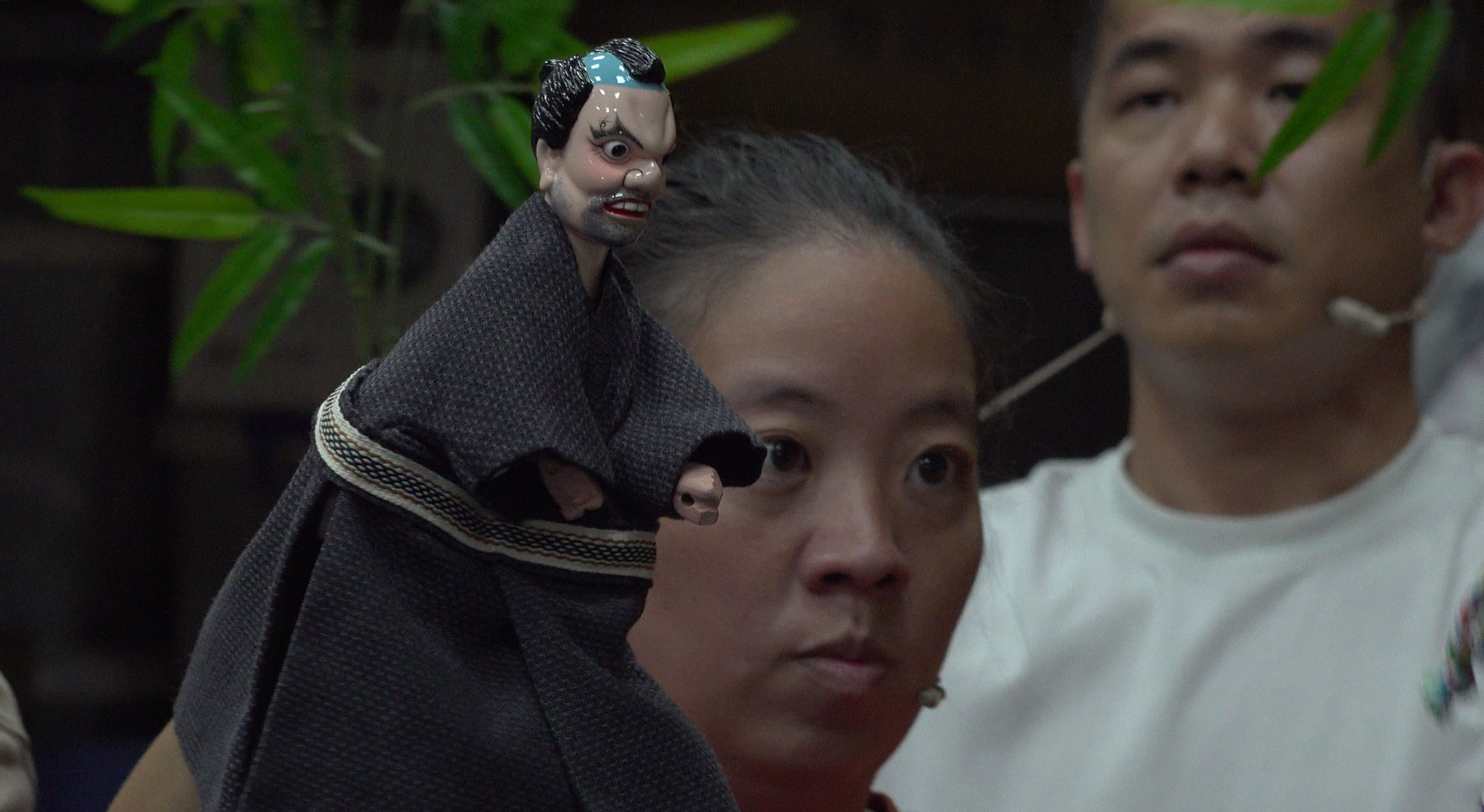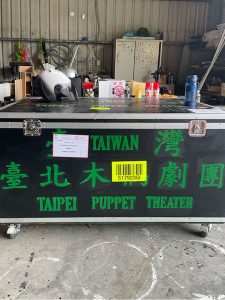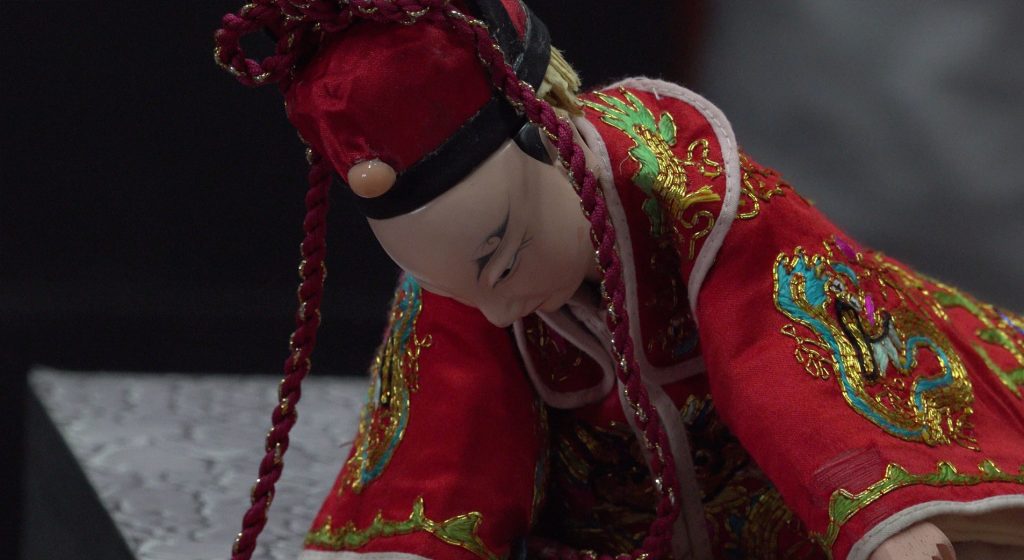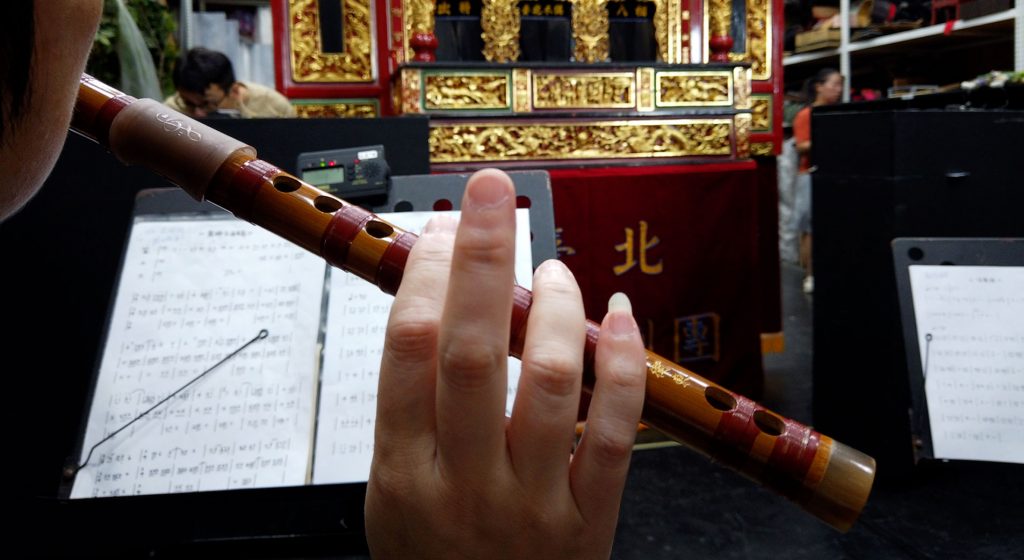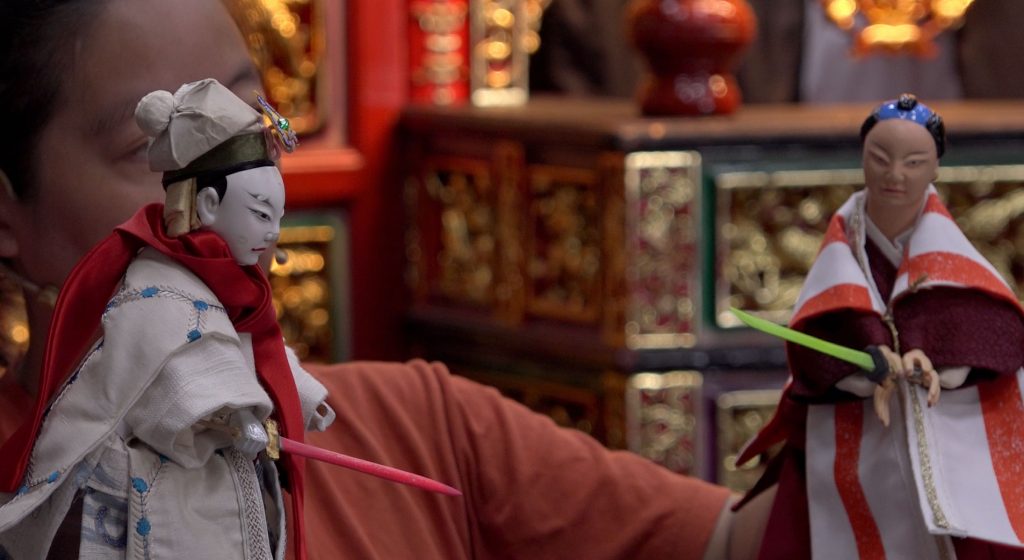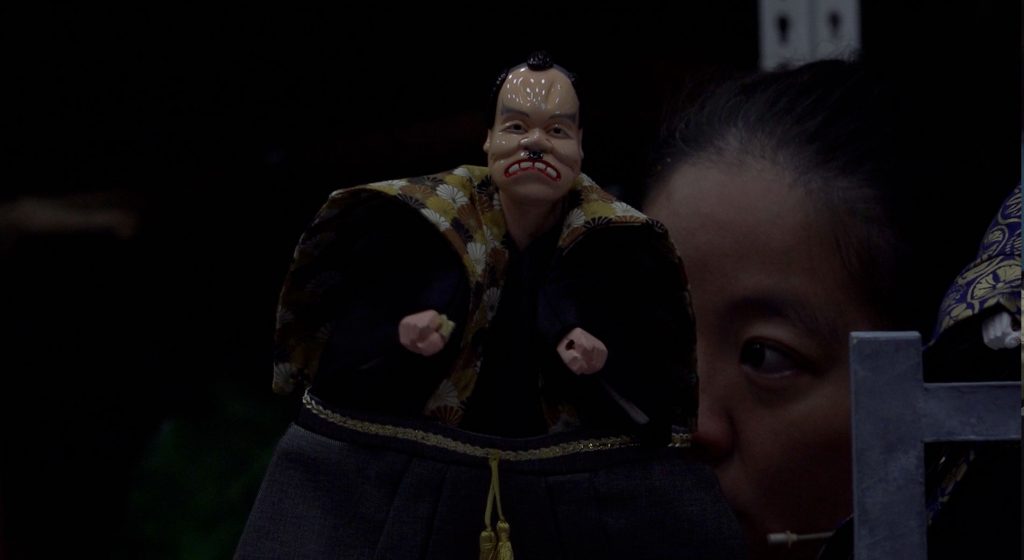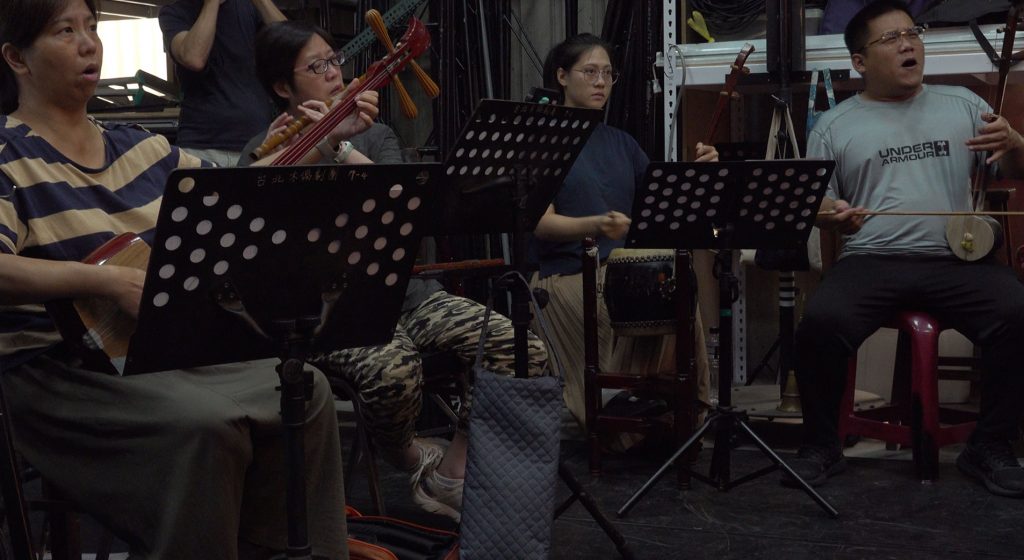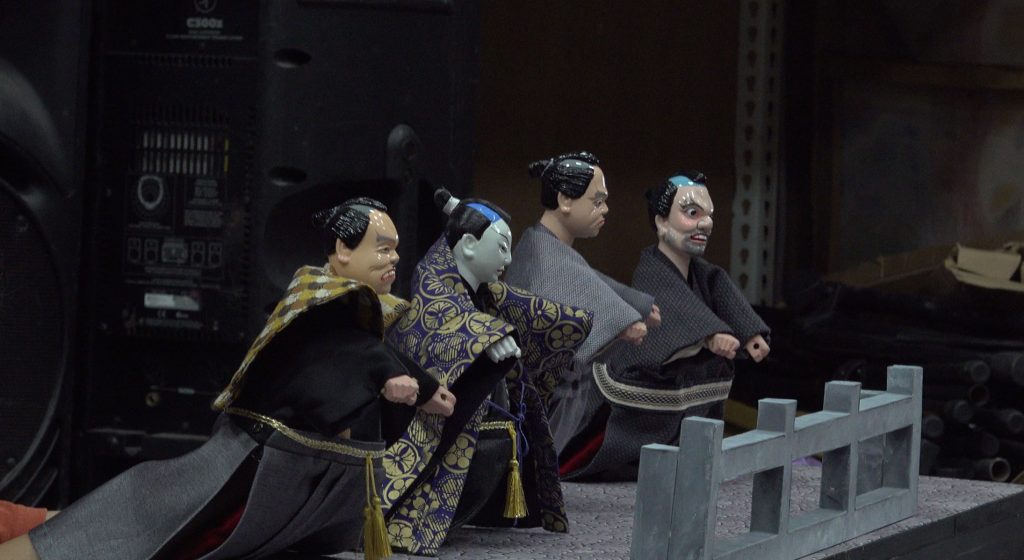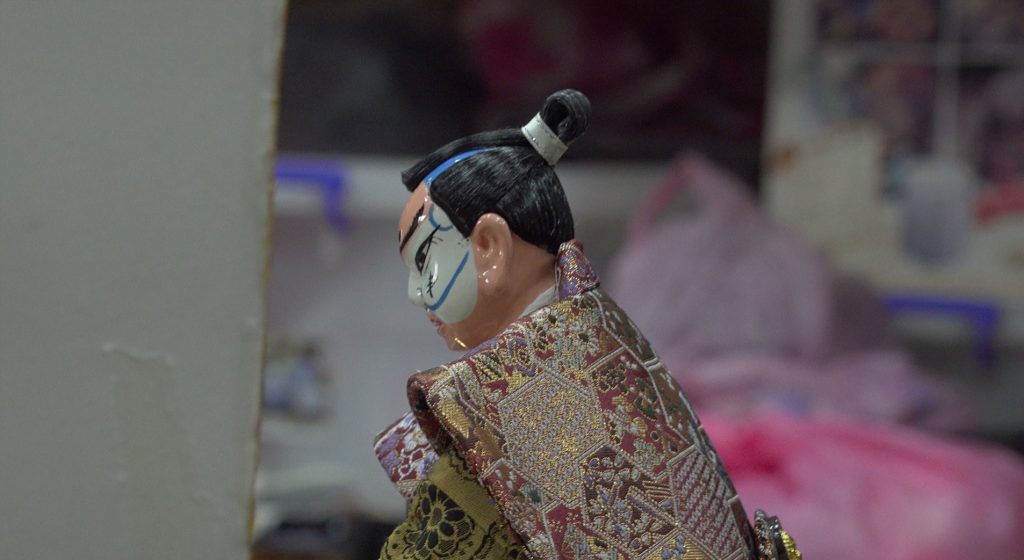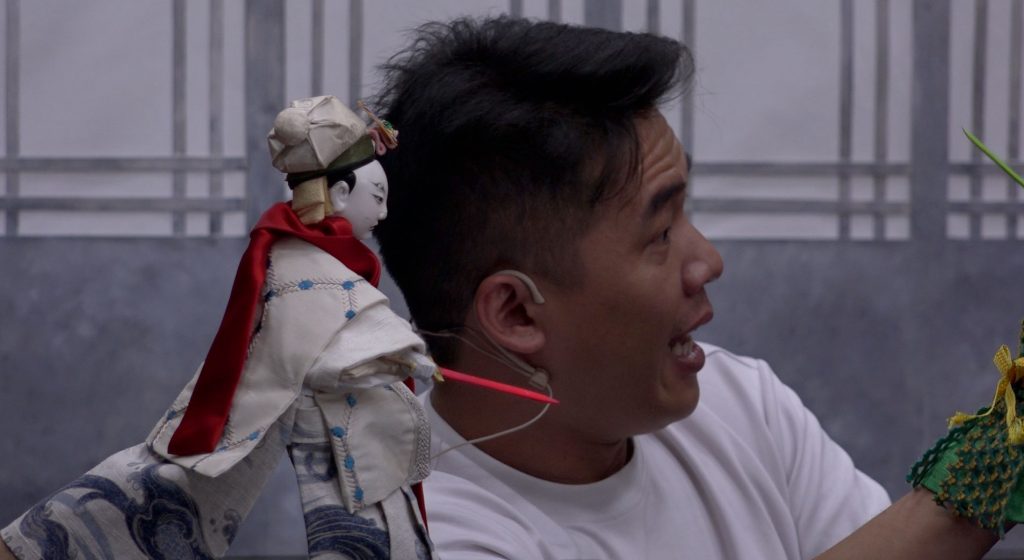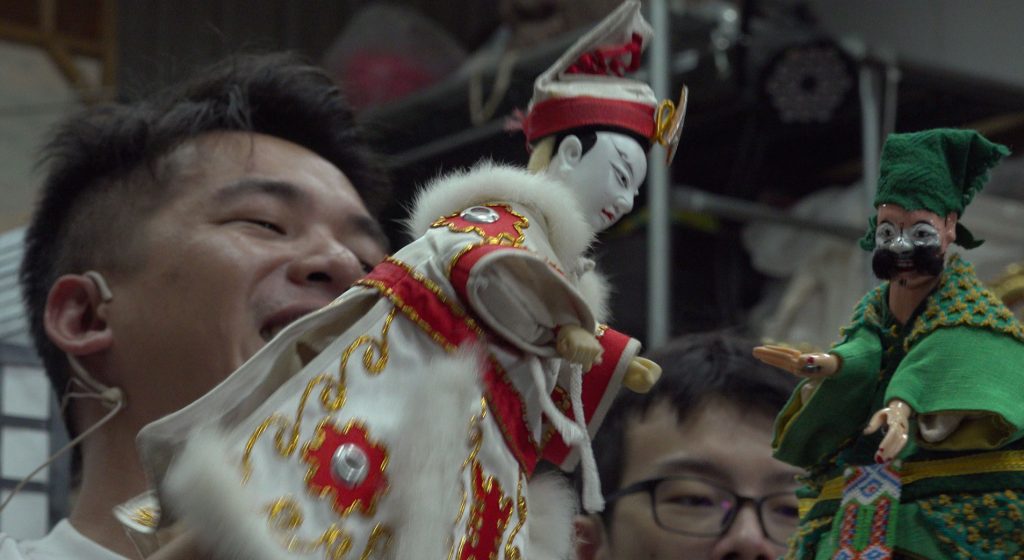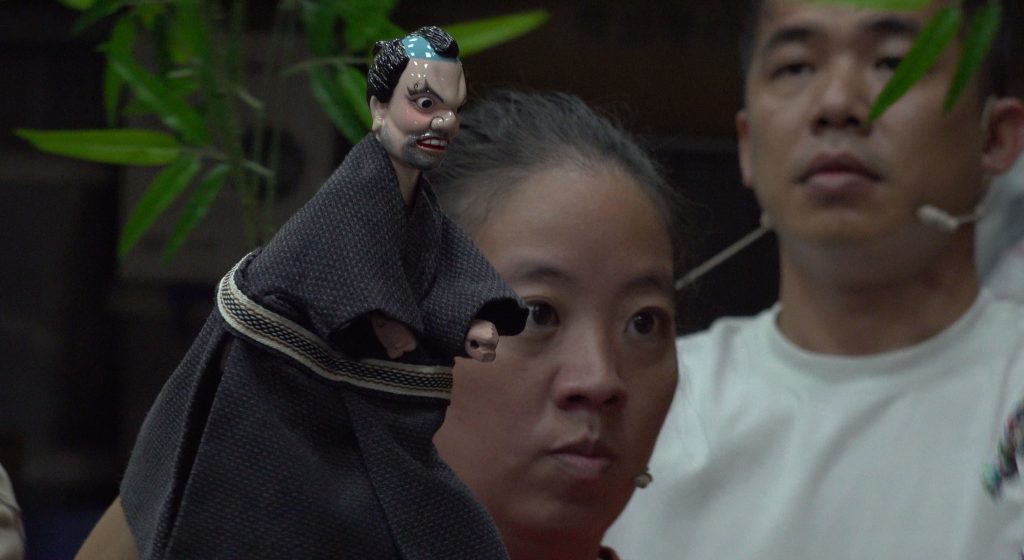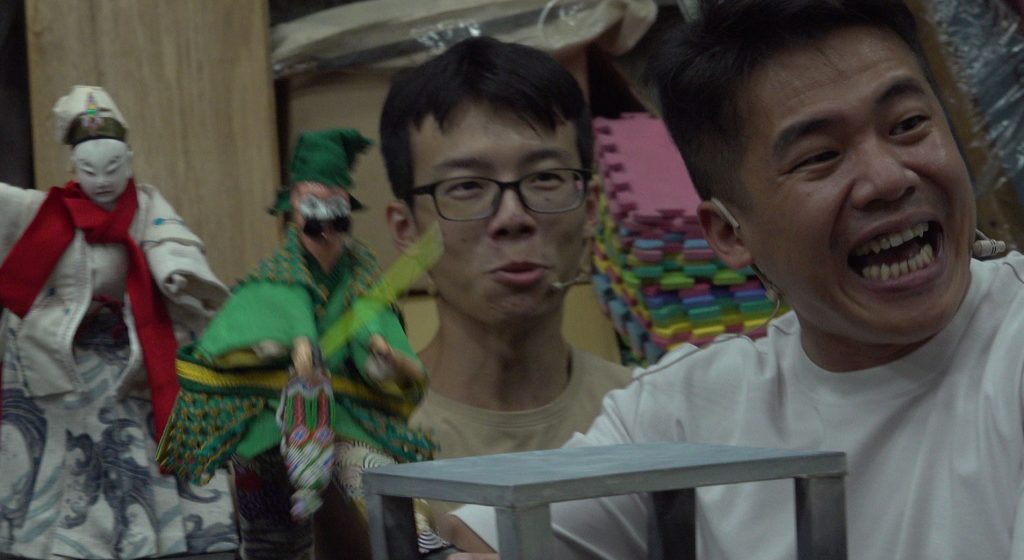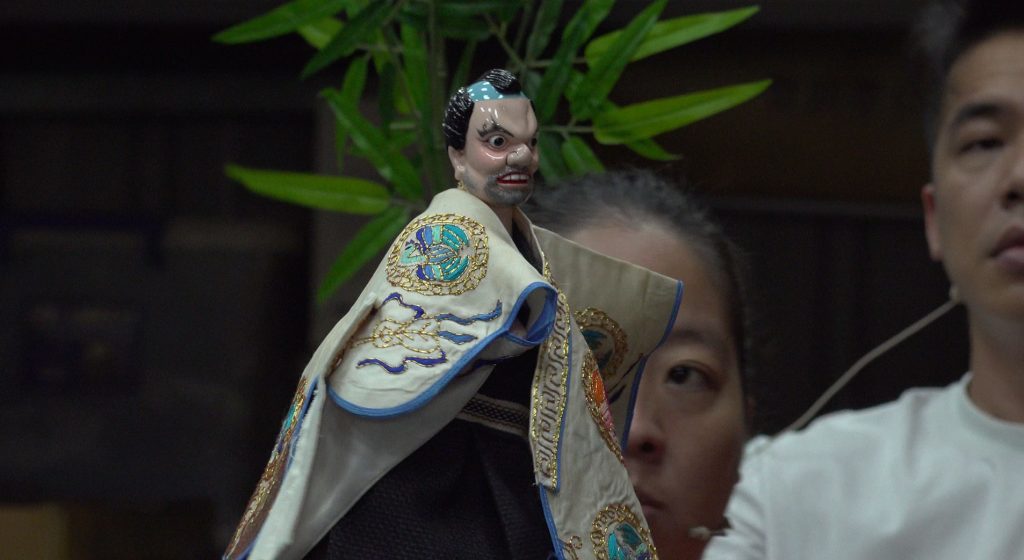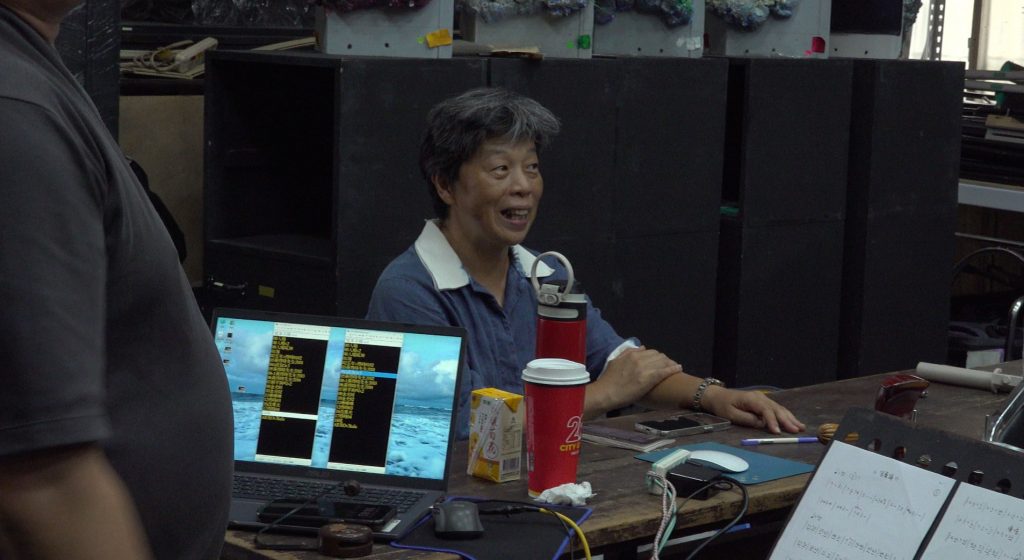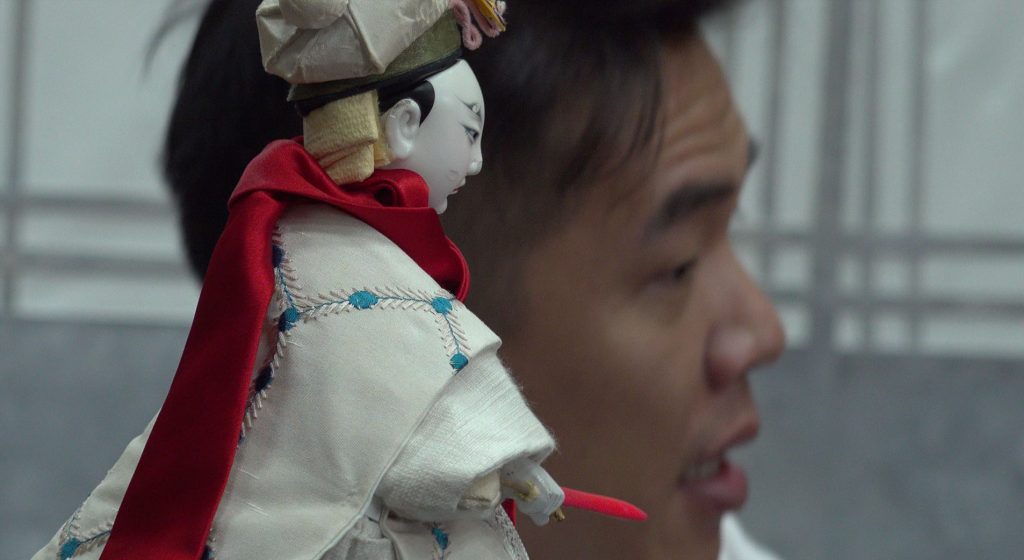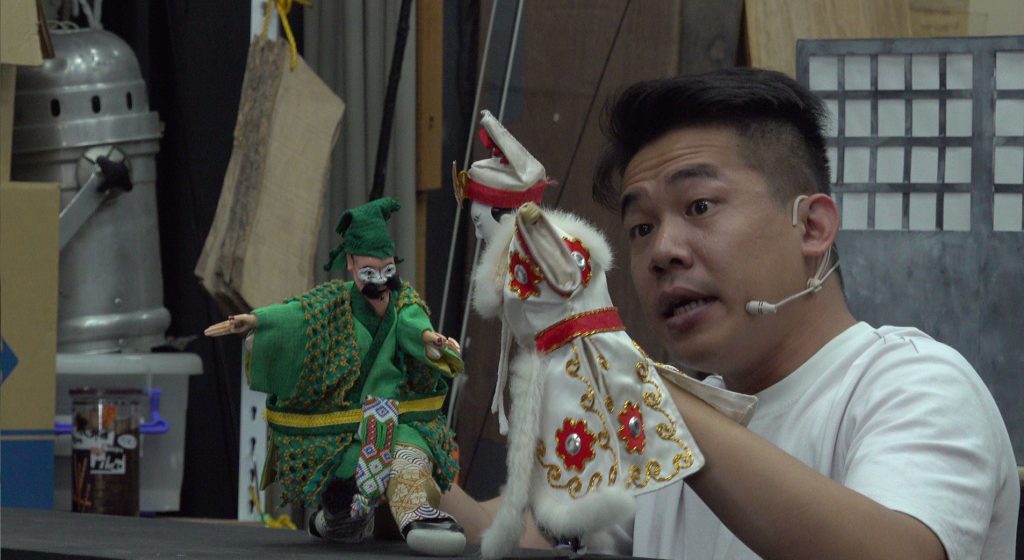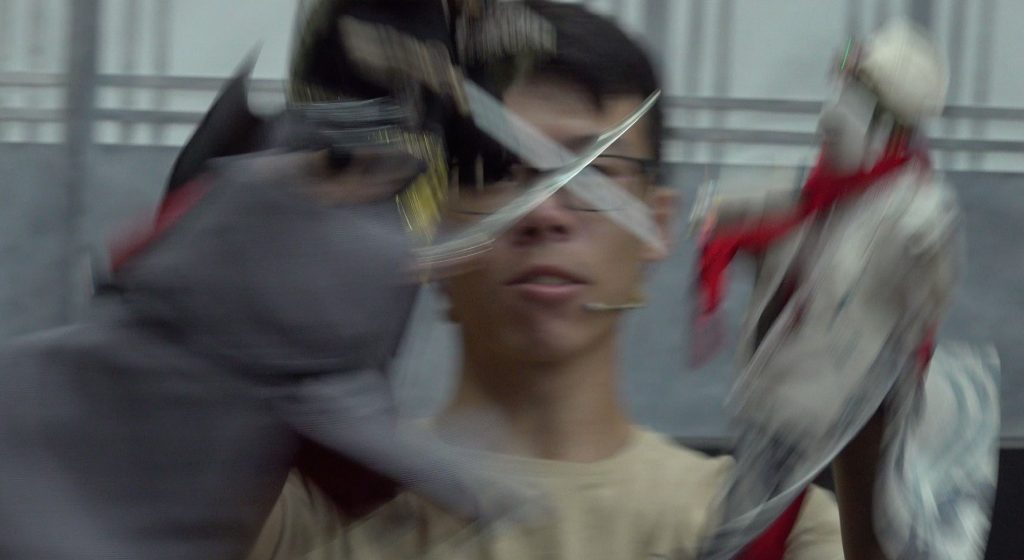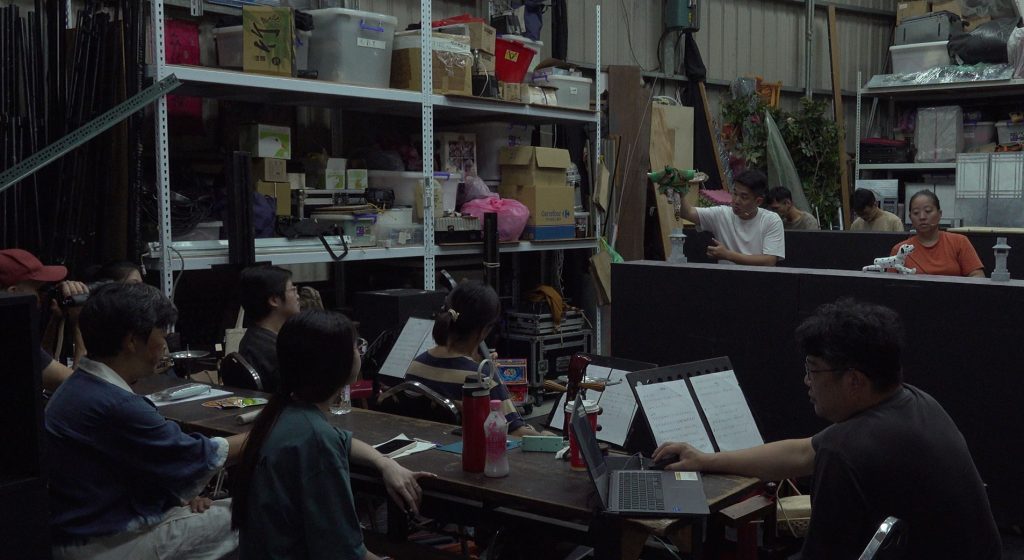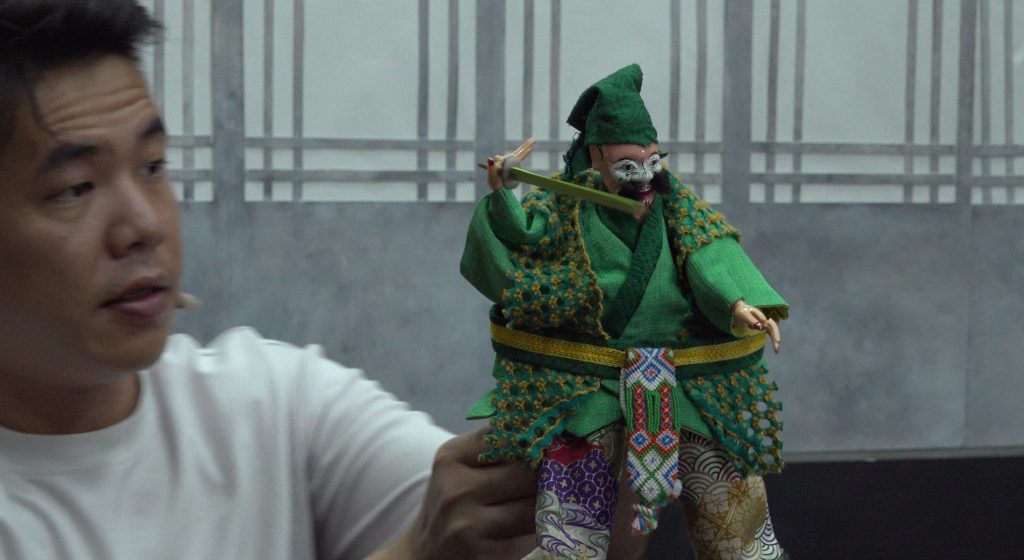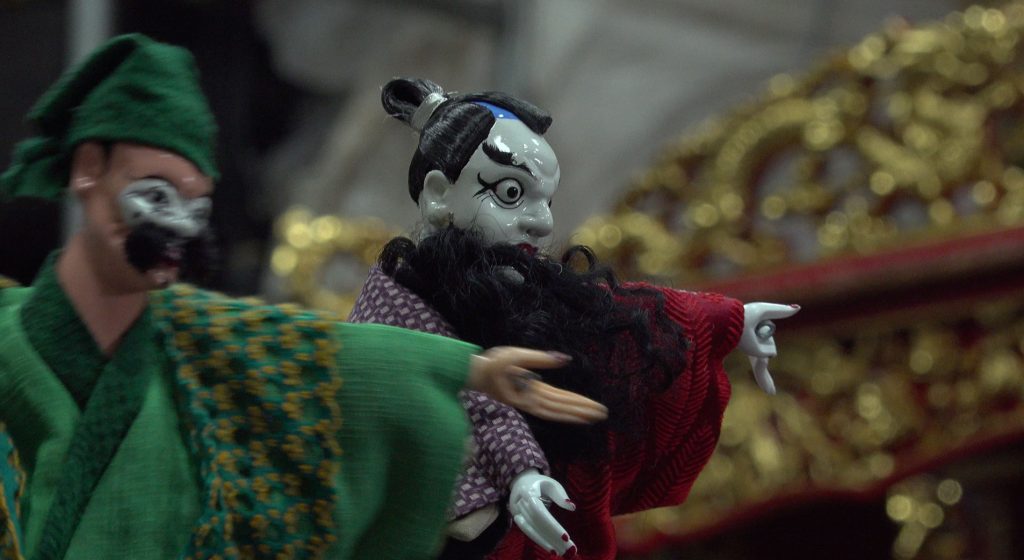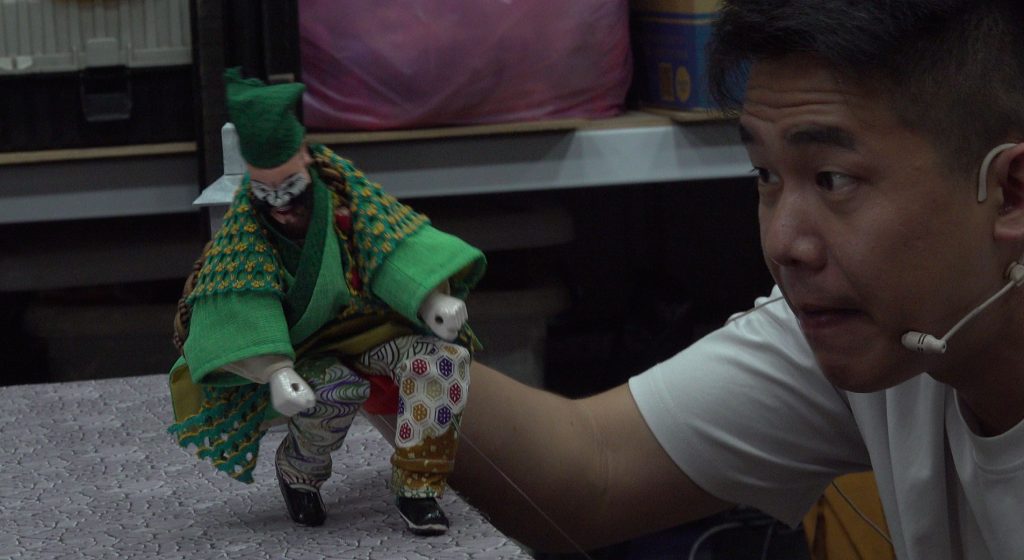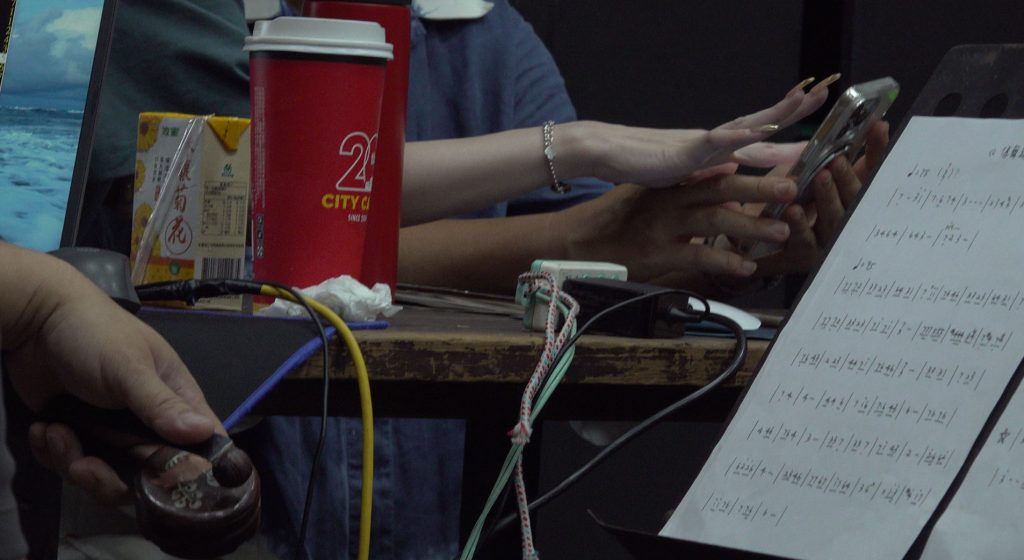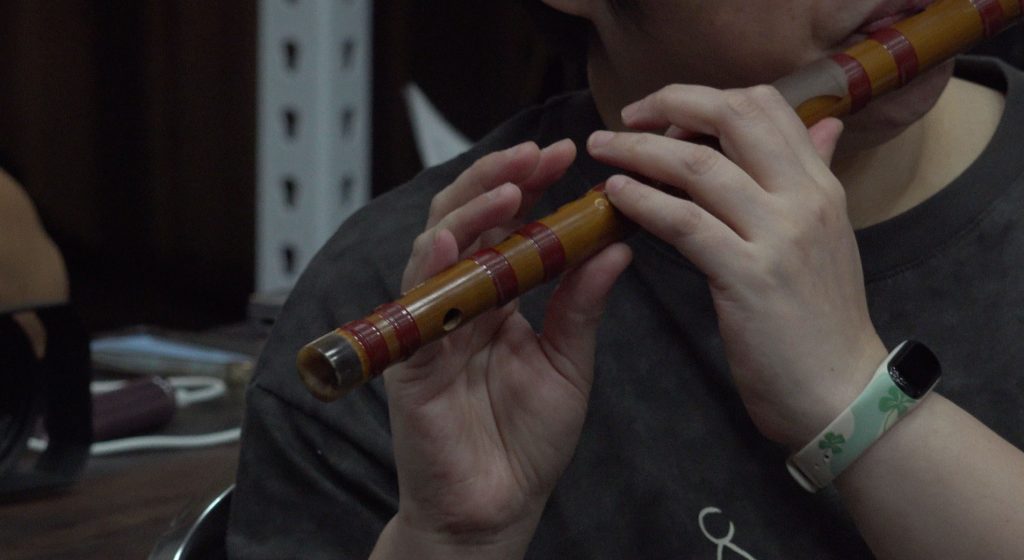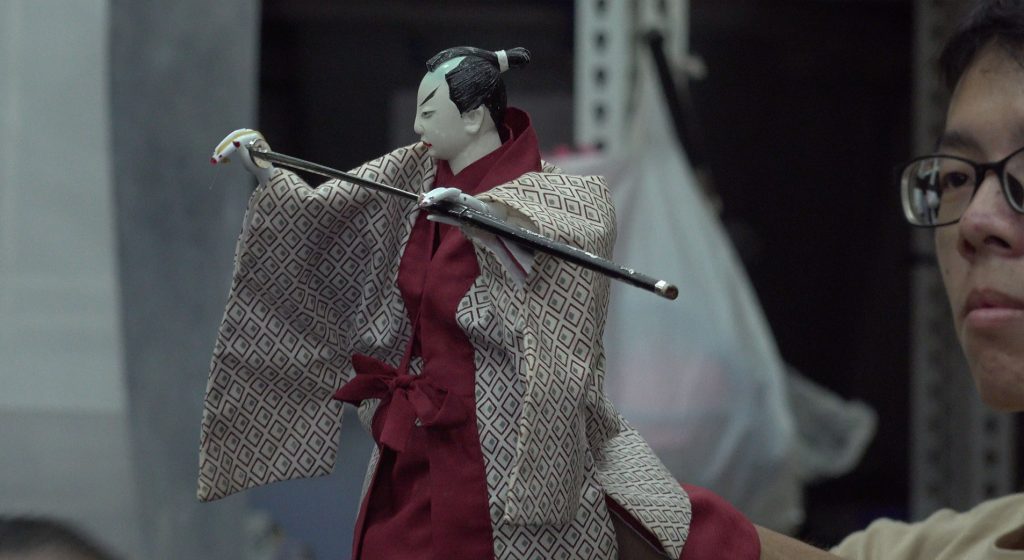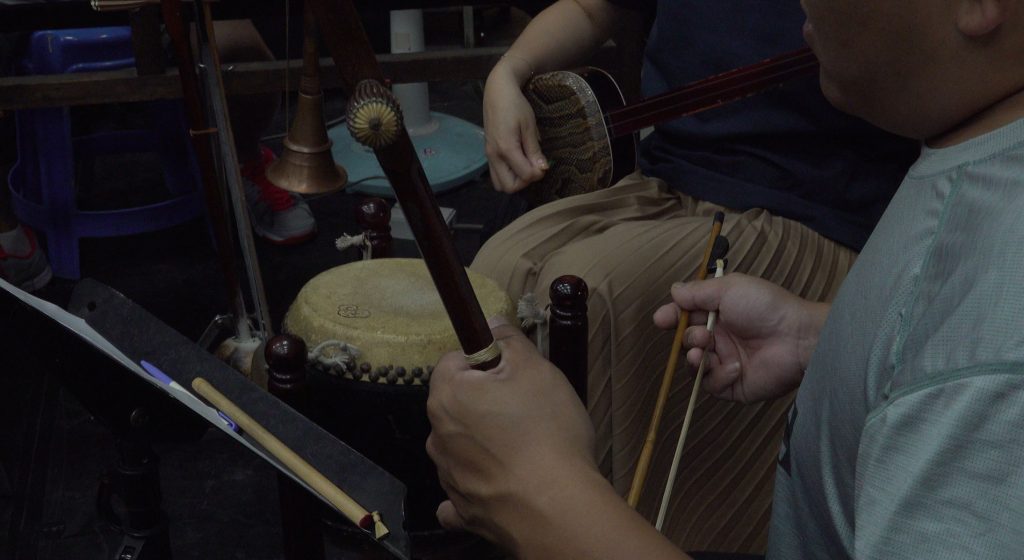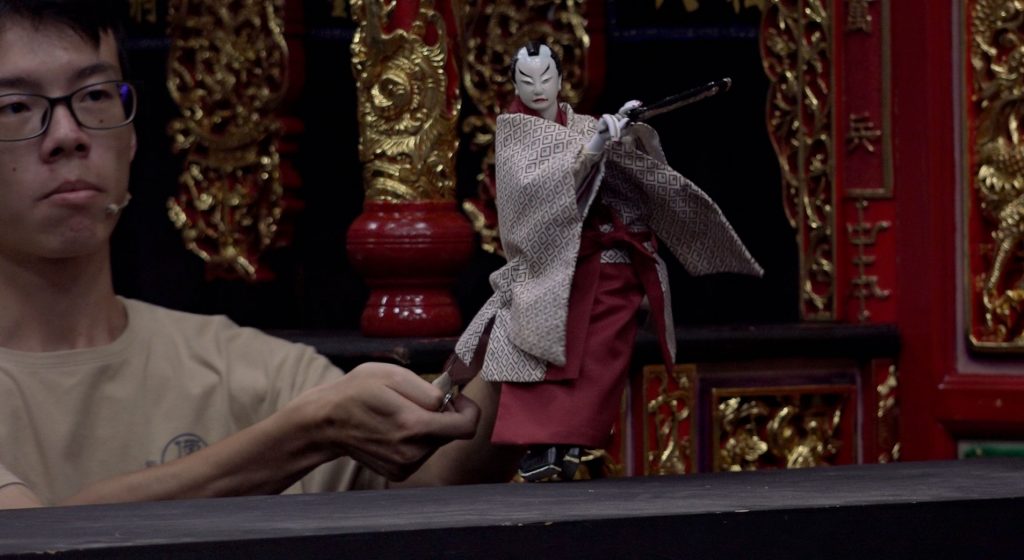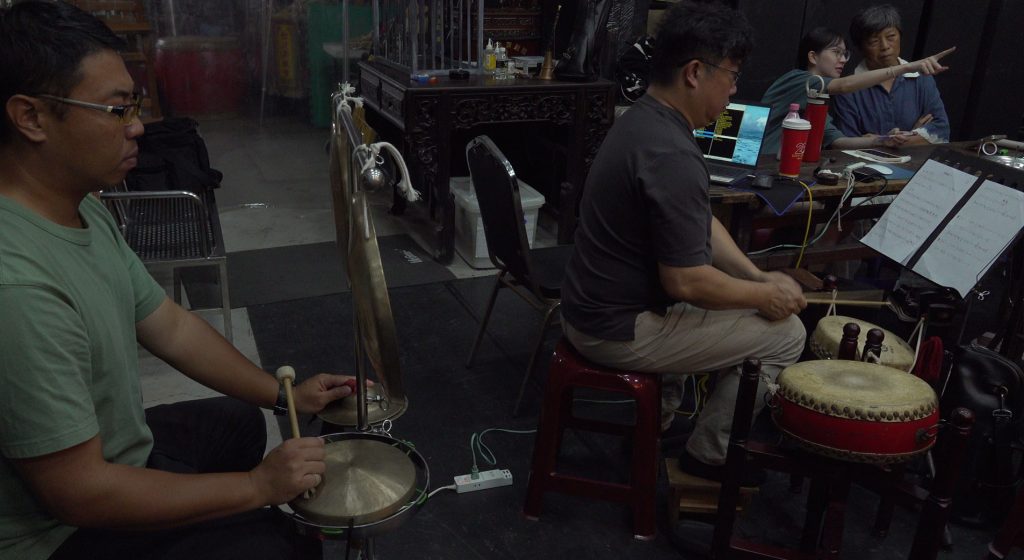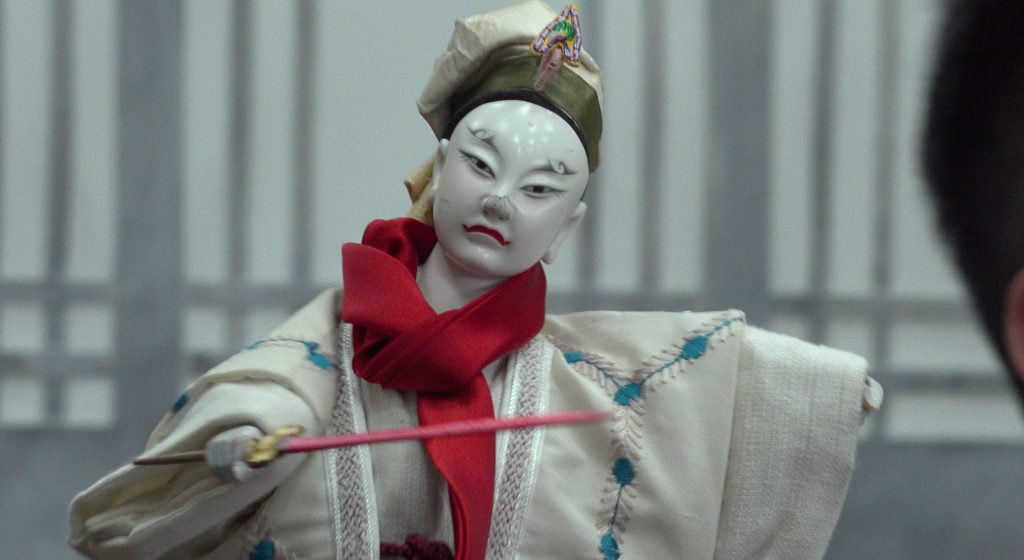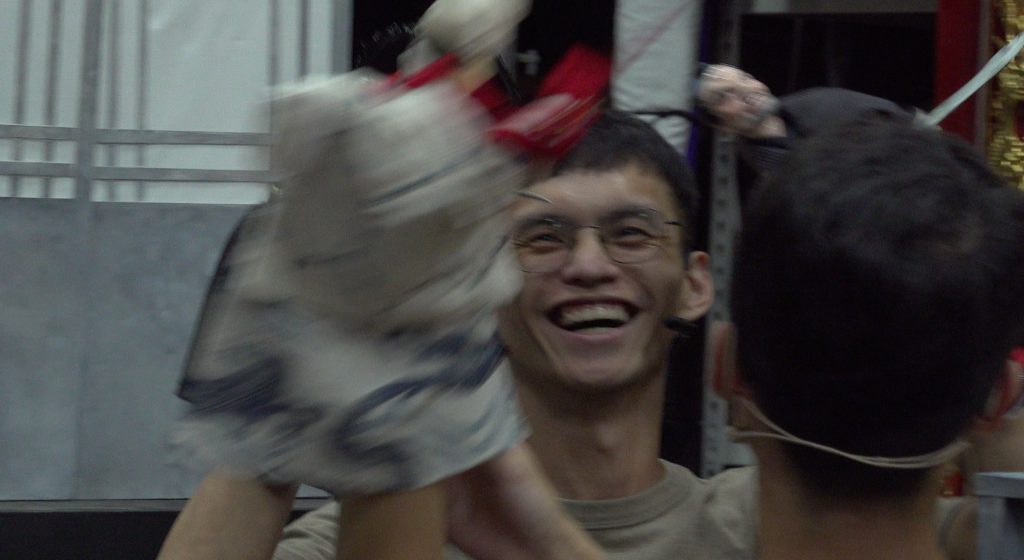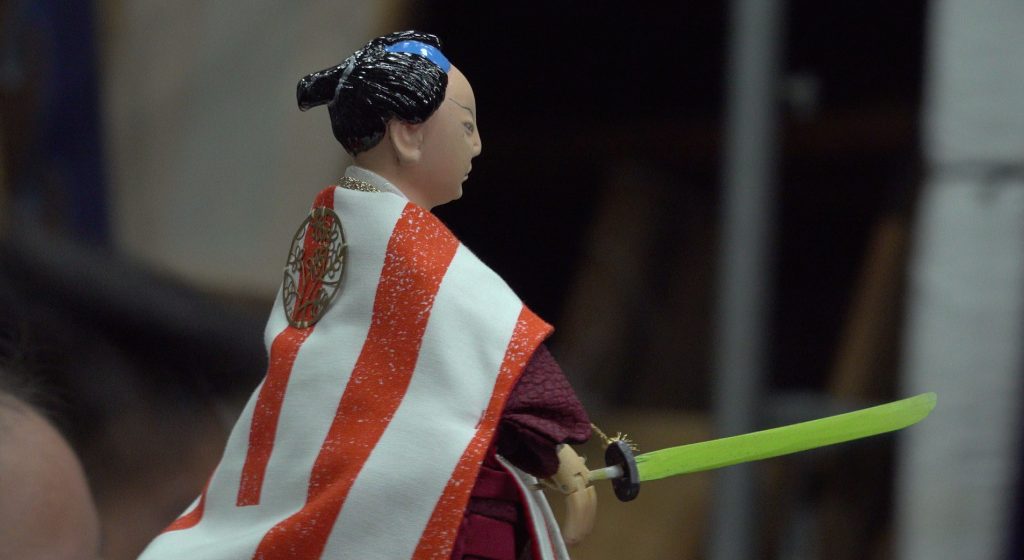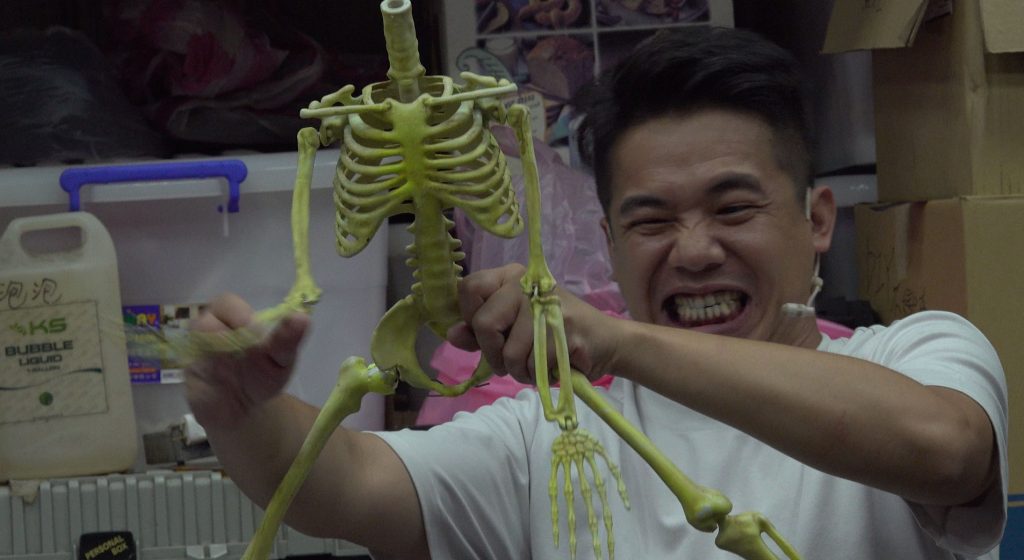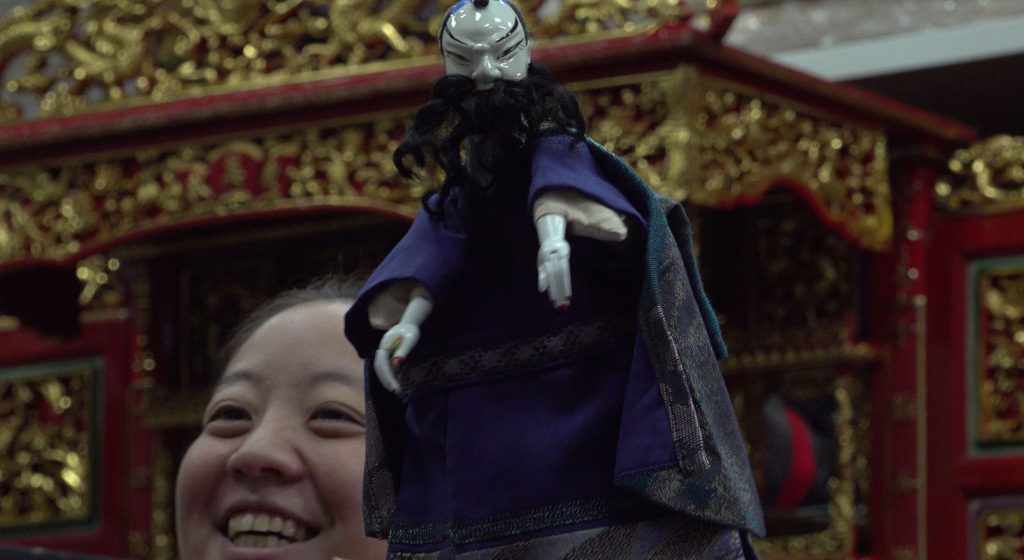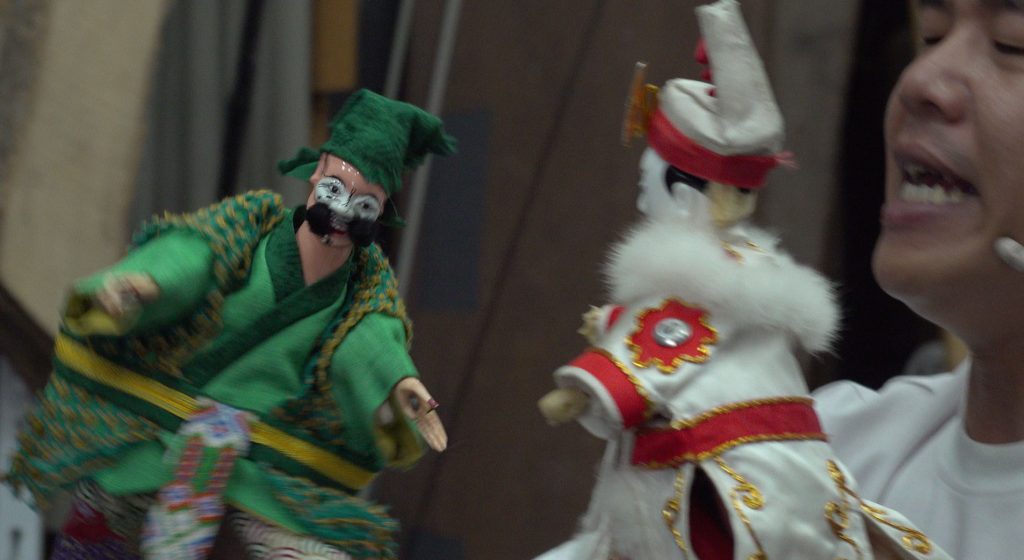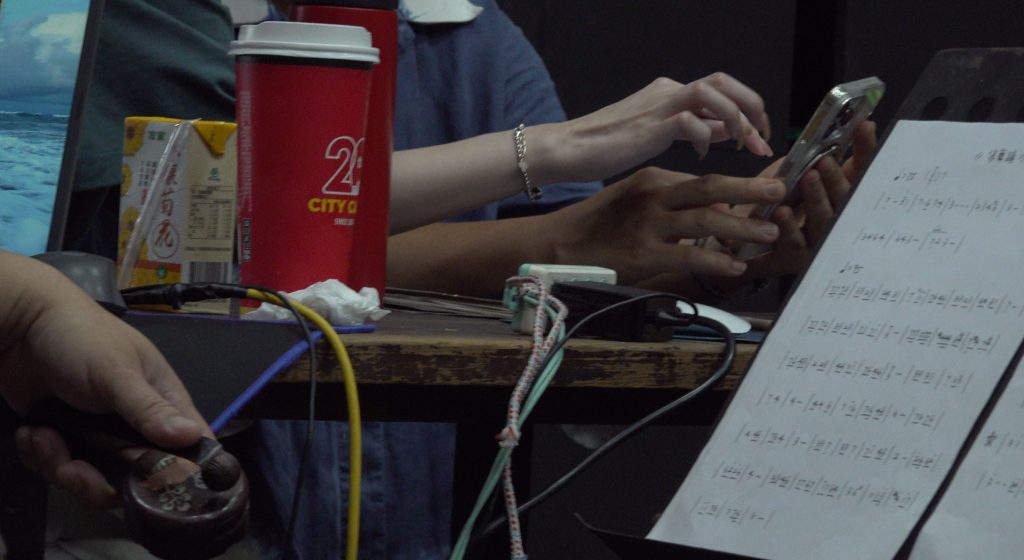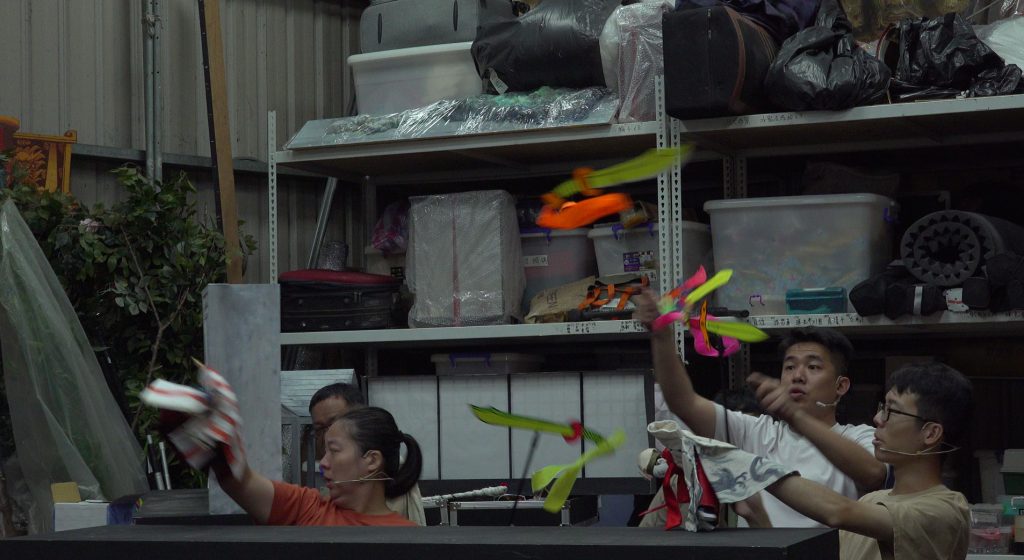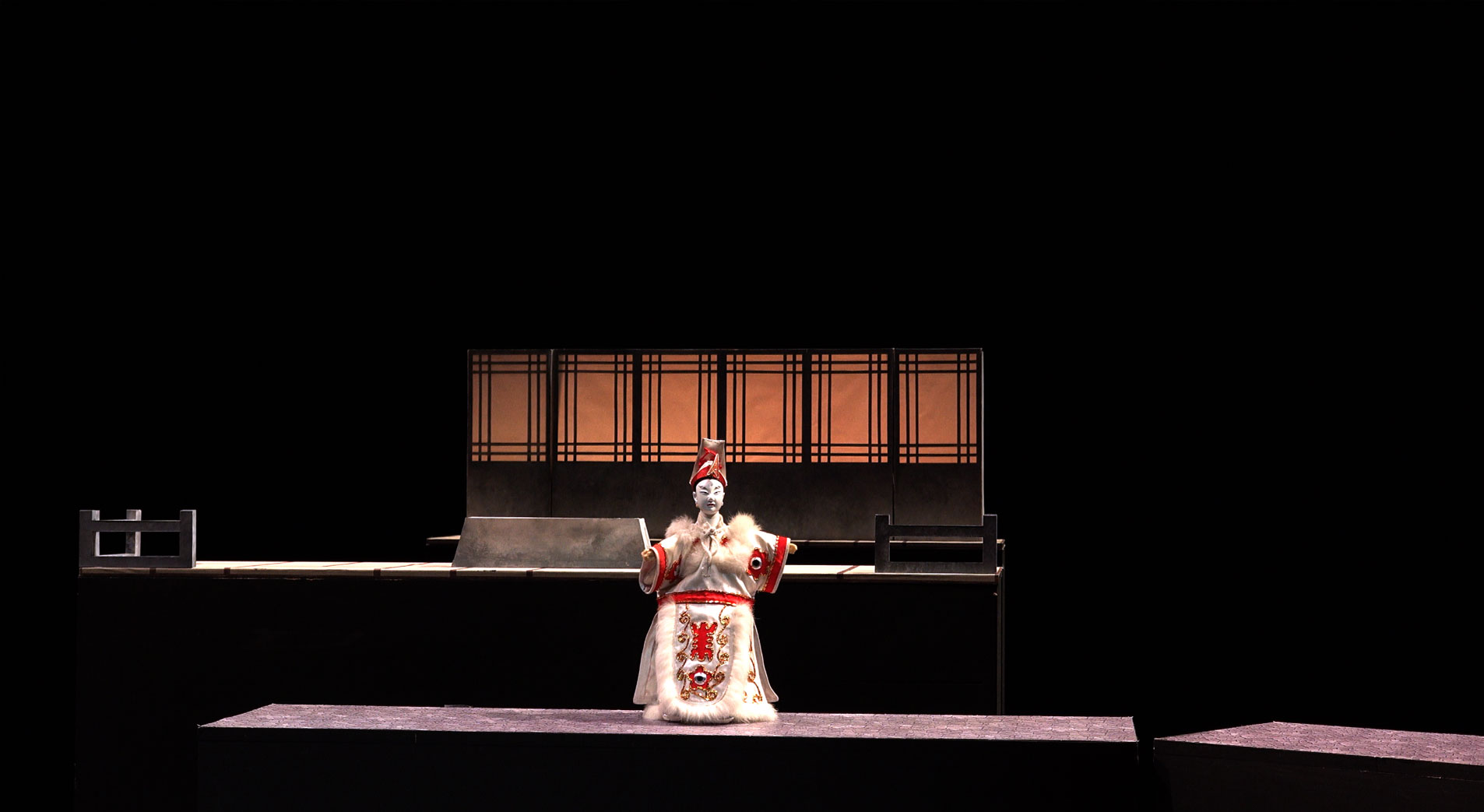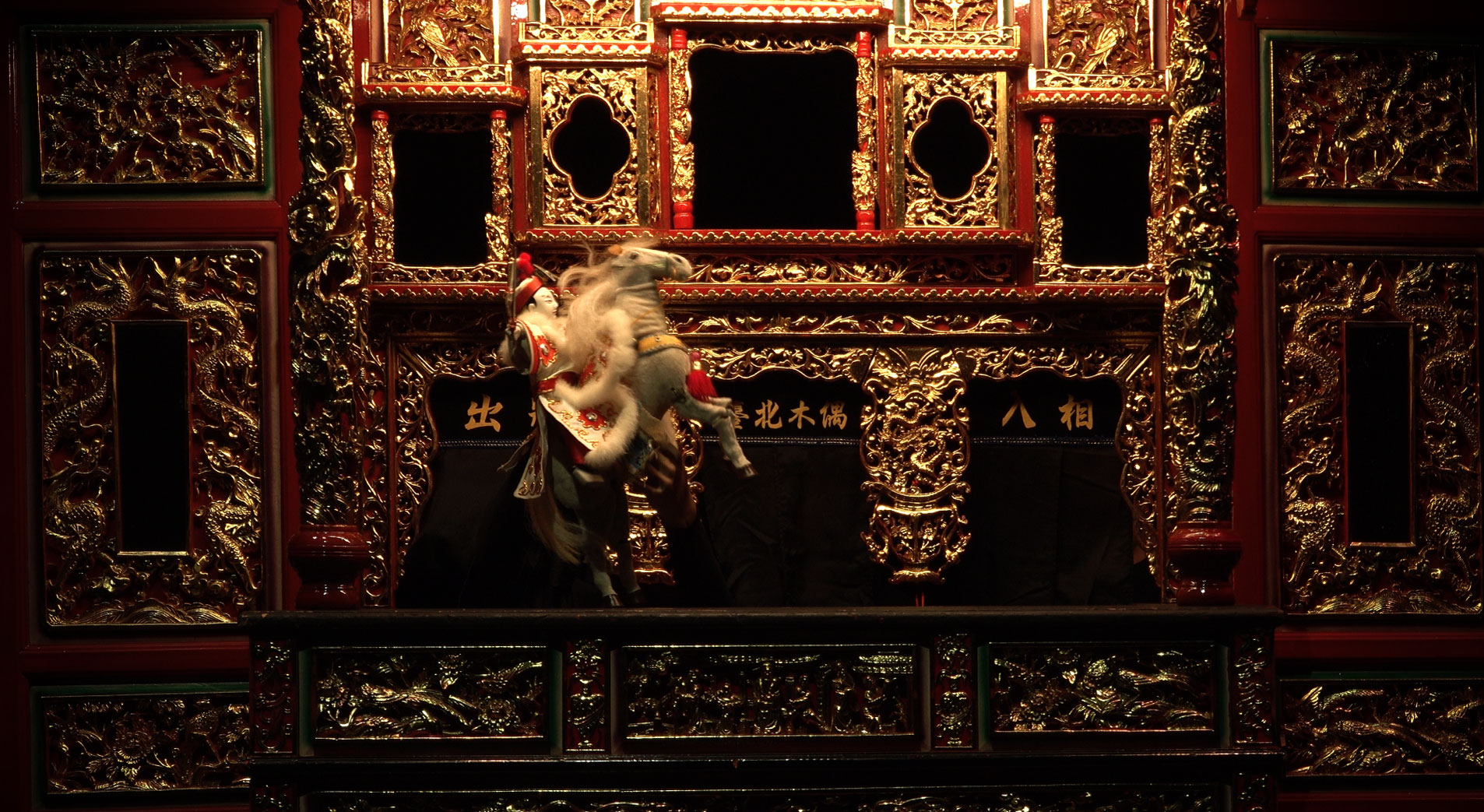Following the invitation of Wu Shan-Shan 伍姍姍 the Artistic Director of the Taipei Puppet Theater 臺北木偶劇團 we visited their headquarters in New Taipei City on August 29th 2024 to observe a rehearsal for their play “Dream of Becoming.”
In their program description the Taipei Puppet Theater introduces the Dream of Becoming as: “Living within the folk community, Taiwanese puppetry has always occupied a place in the arena of popular entertainment, having to not only face the changing aesthetic tastes of people in different eras but also to resiliently survive under changes in political regimes. In the final years of Japanese colonial rule, amidst the influence of Japanese traditional puppet theatre, Bunraku (文樂), and modern puppetry, Huang Deshi remained steadfast in his belief in the uniqueness and value of Taiwanese puppetry art. The Taipei Puppet Theater is a representative traditional puppetry troupe in Taiwan. Breaking away from the traditional family-based puppetry troupes and their constraints, it focuses on preserving Taiwanese traditional arts. Through practical research, fieldwork, and collaboration with master puppeteers, the theatre constructs works representing different periods. Amidst the tide of generational exchange, the theatre began collaborating with modern directors and artists from various fields, reinterpreting traditional Taiwanese puppetry to create new puppetry works that resonate with the contemporary era. “Dream of Becoming (得時の夢)” not only represents Mr Huang Deshi’s imagination of traditional puppetry but also embodies the modern professional theatre troupe’s contemplation on how to adapt to the times—a dream of art conforming to the zeitgeist!”
The troupe currently has 12 full-time members, some of them having worked as musicians and puppeteers for many decades and made it their career’s purpose to continue the life of traditional puppet shows in Taiwan.
Director of Taipei Puppet Theater | Lin Yung-Chih 林永志
Artistic Director|Wu Shan-Shan 伍姍姍
Chief Administrator |Hsieh Chiung-Chi 謝琼崎
Puppeteer |Wu Sheng-Chieh 吳聲杰
Puppeteer |Chen Ssu-Ting 陳思廷
Puppeteer |Liao Chun-Wei 廖群瑋
Puppeteer |Lin Jui-Teng 林瑞騰
Musician | Wang Hsiang-Liang 王祥亮
Musician |Lin Ching-Cheng 林璟丞
Musician |Lin Chen-Hung 林宸弘
Musician |Liu Shih-Wen 劉士聞
Administrative Assistant|Lin Jia-Fan 林珈帆
The rehearsal took place in preparation for a shortened 30min “Showcase” performance of “Dream of Becoming” at the Taipei Performing Arts Center 臺北表演藝術中心 on September 5, 2024.
When the first character, Bai Yu-Tang, appears on the stage he says: 白玉堂:哎呀,五鼠江湖得美名,如今卻是被人欺,唵,錦毛鼠白玉堂,可恨展昭封御貓,無疑藐視吾陷空島五鼠,我一定要上京走找展昭. (Oh dear, in the realm of martial arts, the Five Rats have a renowned reputation. But now we’re being bullied by others. I, I am Bai Yu-Tang, the Golden-Haired Rat. That detestable Zhan Zhao 展昭 has been granted the title of “Imperial Cat.” This is undoubtedly a mockery of us, the Five Rats of Hollow Island. I must go to the capital to confront Zhan Zhao, to see if it’s the cat catching the mouse or the mouse playing with the cat!”)
Bai Yu-Tang 白玉堂 is a fictional character from the 19th century Chinese novel The Seven Heroes and Five Gallants. Set in 11th-century Song dynasty, the story detailed the rise of legendary judge Bao Zheng to high office, and how a group of youxia (knights-errant)—each with exceptional martial arts talent and selfless heroism—helped him fight crimes, oppression, corruption and rebellion. It was one of the first novels to merge the gong’an (court-case fiction) and the wuxia (chivalric fiction) genres.
Praised for its humorous narration and vivid characterizations, the novel has enjoyed huge readership: it spawned two dozen sequels by 1924 (according to Lu Xun) and served as the thematic model of allegedly over 100 novels in the late Qing dynasty. Even in the modern era, the tales have been continuously reenacted in popular cultural mediums, including oral storytelling, operas, films and TV dramas.
Wuxia (武俠 [ù.ɕjǎ], literally “martial arts and chivalry”) is a genre of Chinese fiction concerning the adventures of martial artists in ancient China. Although wuxia is traditionally a form of historical fantasy literature, its popularity has caused it to be adapted for such diverse art forms as Chinese opera, manhua, television dramas, films, and video games. It forms part of popular culture in many Chinese-speaking communities around the world. According to Hong Kong film director, producer, and movie script writer Ronny Yu, wuxia movies are not to be confused with martial arts movies
Gong’an or crime-case fiction (Chinese: 公案小说) is a subgenre of Chinese crime fiction involving government magistrates who solve criminal cases. Gong’an fiction first appeared in colloquial stories of the Song dynasty. Gong’an fiction was further developed and became one of the most popular fiction styles in Ming and Qing dynasties. The Judge Dee and Judge Bao stories are the best known examples of the genre. (from wikipedia)
In “Dream of Becoming” well-known characters, such as The Five Rats, appear within the time period of Japanese colonial rule in Taiwan, showing the audience how traditional puppet theater has adapted its costumes, language, music styles, stage sets and movements to various political pressures, celebrating the fact that the core principles of performing hand puppetry 布袋戲 (Budaixi) as an art form has survived since the 17th century (or earlier), when it originated in China’s Fujian province as a type of musical theatre (Chinese opera).
